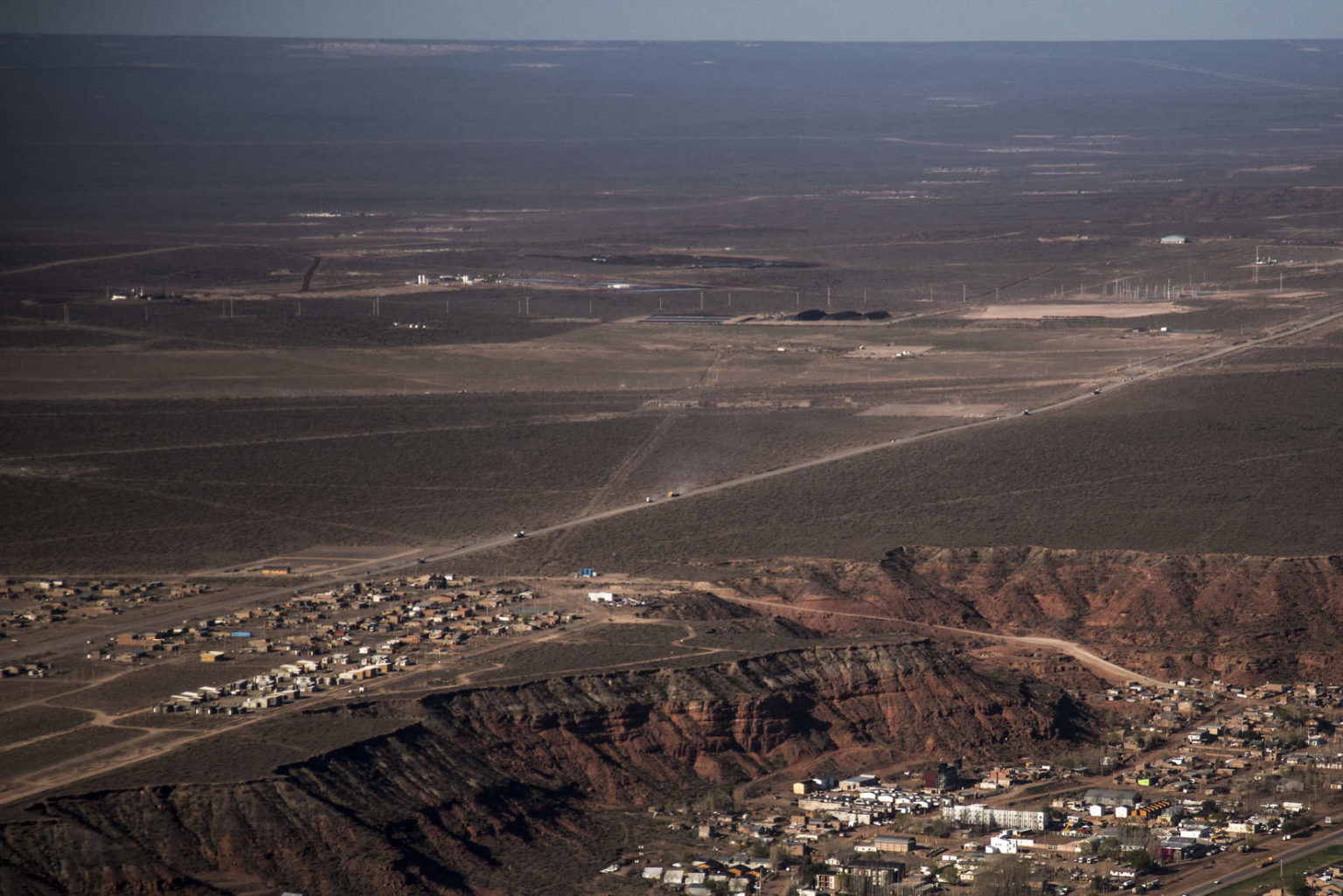A major indigenous group in Argentina has filed a criminal complaint against BP subsidiary Pan American Energy for illegally dumping toxic fracking waste in the “sensitive Patagonian environment”.
According to Greenpeace analysis, the “hazardous waste” contains high levels of hydrocarbons, heavy metals, and radioactive elements that pose reproduction and inhalation risks.
The waste pools, one of which spans the equivalent of 15 football pitches, sit less than 3 miles from the town of Añelo, indigenous agricultural lands, and the region’s principal river. Dumped directly onto unprotected soil with no drainage system, none of the waste is being treated in accordance with provincial or national environmental laws.
BP have previously ruled out fracking in the UK because it would attract “the wrong kind of attention”.
Lawsuit
The lawsuit brought by Mapuche Confederation of Neuquén also names Exxon, Total, provincial authorities and local fracking waste treatment company Treater Neuquén S.A.
“We denounce the company Treater Neuquén S.A., responsible for environmental contamination with hazardous waste, for deficient treatment and disposal of the oil industry’s waste,” said Héctor Jorge Nawel, coordinator for the Xawvn Ko area of the Confederation.
“It is critical that the state authorities and oil company executives who allowed this happen be held accountable, and that our right to a healthy environment be respected”, he said
The waste comes from operations in the Vaca Muerta basin, which houses approximately 830 fracking wells. Roughly the size of Belgium, it is the second largest shale reserve in the world, and would take up 10 percent of the world’s remaining 1.5C carbon budget if fully exploited. Each of Vaca Muerta’s wells generates roughly 700 cubic metres of waste each month.
Responding to a letter from Greenpeace, Pan American Energy (PAE) said that their inclusion in the lawsuit is a mistake as they have “no contractual relation with the Treater company based in Neuquen”. The company is identified as a client on Treater’s website, however, and has already once refused to admit responsibility for contamination in the country.
“BP is a shareholder in Pan American Energy, but we do not operate the company,” said BP when contacted for comment. The British firm has a 50 percent stake in the subsidiary.
“PAE is a major money spinner for BP,” said Paul Horsman, spokesperson for Greenpeace Andino’s climate and energy campaign. “The message needs to get to their shareholders – if they acknowledge the need for climate action, why are they investing millions of dollars in one of the world’s biggest carbon bombs, and bringing huge amounts of local social disruption and environmental destruction?”
Shell, not named in the suit but also dumping “thousands of tonnes” of waste according to Greenpeace, has acknowledged a contractual relationship with Treater, but stated that the authorities are responsible for supervising the company’s operations. Neither PAE nor Shell responded directly to the allegations made in Greenpeace’s letter.
Water Contamination
Pan American Energy and Shell have already been criticised for their operations in the area.
Both control fracking blocks that overlap substantially with Auca Mahuida, a designated biodiversity protection area with cultural importance to Mapuche communities.
In PAE‘s flagship block Lindero Atravesado, wells are situated close to a reservoir that provides the provincial capital Neuquén with drinking water.
The sensitive locations of these wells is a concern to communities because in 2018, there have been on average two spills a day in the basin. In October, the biggest accident in the shale play’s history sent gas and oil spewing uncontrollably for over 36 hours towards Añelo and the Neuquén river.
Greenpeace analysis also showed that orchard soil in neighbouring city Allen is contaminated.
Once world-renowned for its pears and apples, farmers claim they can no longer sell their fruit, and are struggling with abnormally high rates of leukaemia and respiratory problems. Since Greenpeace’s analyses were conducted, another serious well blow-out spewed fracking fluid onto the banks of the region’s principal river.
Image: Greenpeace Andino
Subscribe to our newsletter
Stay up to date with DeSmog news and alerts






